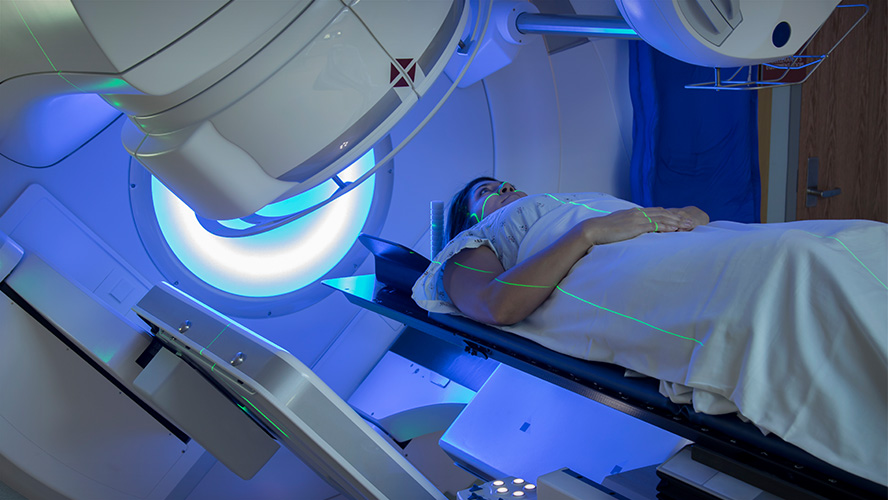
Researchers from UHN’s Princess Margaret Cancer Centre (PM) led an international trial to investigate whether stereotactic body radiation therapy (SBRT) improves outcomes for patients with advanced hepatocellular carcinoma (HCC). SBRT is a form of radiation therapy that delivers high doses of radiation to tumours.
HCC, a type of liver cancer, is a leading cause of cancer-related death worldwide with most patients facing disease recurrence following treatment with standard therapies. Macrovascular invasion (MVI)—the spread of cancer into the blood vessels of the liver—is associated with a poor prognosis. At the time of the study's inception, the standard treatment for patients with HCC and MVI was sorafenib, a drug that interferes with cancer cell growth.
Dr. Laura Dawson, a Clinician Scientist at PM and the study’s lead author, examined whether SBRT improves outcomes for patients with advanced HCC, most of whom had MVI, compared with sorafenib alone in a randomized trial.
In the trial, patients were randomly assigned to receive either sorafenib alone or a combination of targeted radiation therapy (SBRT) followed by sorafenib. Researchers then evaluated how long patients lived (overall survival) and how long the cancer remained stable (progression-free survival).
The trial found that SBRT was associated with an improved overall survival compared with sorafenib alone. Patients treated with SBRT followed by sorafenib were 28% less likely to die over the study period than patients treated with sorafenib alone. They also experienced improved progression-free survival, with no concerning increase in toxic effects.
The researchers concluded that SBRT should be considered a standard treatment for advanced-stage patients with HCC. The trial highlighted the benefits of SBRT for patients with advanced HCC, especially with MVI, and recommended further studies to evaluate the impact of SBRT in combination with newer immunotherapies.
Dr. Laura Dawson is the lead author of the study. She is a Clinician Scientist at PM and a Professor of Radiation Oncology at the University of Toronto.
This work was supported by the National Cancer Institute and The Princess Margaret Cancer Foundation.
Dr. Laura Dawson received personal fees from AstraZeneca and Elekta, as well as grants from Merck outside the submitted work. For additional competing interests, see the manuscript.
Dawson LA, Winter KA, Knox JJ, Zhu AX, Krishnan S, Guha C, Kachnic LA, Gillin MT, Hong TS, Craig TD, Williams TM, Hosni A, Chen E, Noonan AM, Koay EJ, Sinha R, Lock MI, Ohri N, Dorth JA, Delouya G, Swaminath A, Moughan J, Crane CH. Stereotactic Body Radiotherapy vs Sorafenib Alone in Hepatocellular Carcinoma: The NRG Oncology/RTOG 1112 Phase 3 Randomized Clinical Trial. JAMA Oncol. 2024 Dec 19. doi: 10.1001/jamaoncol.2024.5403.

